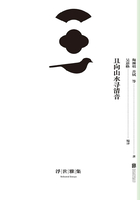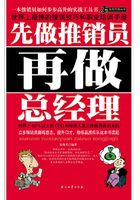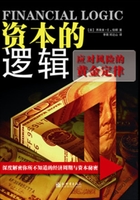The fact, Adam Smith thinks, calls for explanation, that while most men of ordinary capacity despise unmerited praise, even men of the soundest judgment are mortified by un- merited reproach. For, however conscious a man may be of his own innocence, the imputation seems often, even in his own imagination, to throw a shadow of disgrace over his character, and if he is brought to suffer the extreme punishment of human resentment, religion alone can afford him any effectual comfort, by teaching him of an approbation, higher and more important than that of humanity. Why, then, is unjust censure so much less indifferent than unmerited praise? The answer is, that the pain of the one is so much more pungent than the pleasure of the other. A man of sensibility is more humiliated by just censure than he is elevated by just applause. And it is much easier to rid oneself by denial, of the slight pleasure of unmerited praise, than of the pain of unjust reproach. Though nobody doubts any one's veracity when he disclaims some merit ascribed to him, it is at once doubted if he denies some crime which rumour lays to his charge.
When we are perfectly satisfied with every part of our own conduct, the judgment of others is of less importance to us than when we are in any doubt of the propriety of our actions; and the opinion of others, their approbation or the contrary, is a most serious matter to us, when we are uneasy as to the justice of our resentment or the propriety of any other passion. And, as a rule, the agreement or disagreement of the judgments of other people with our own varies in importance for us exactly in proportion to the uncertainty we feel of the propriety or accuracy of our own sentiments or judgments. Hence it is that poets and authors are so much more anxious about public opinion than mathematicians or men of science. The discoveries of the latter, admitting by nature of nearly perfect proof, render the opinion of the public a matter of indifference; but in the fine arts, where excellence can only be determined by a certain nicety of taste, and the decision is more uncertain, the favourable judgments of friends and the public are as delightful as their unfavourable judgments are mortifying.
The sensibility of poets especially is due to this cause; and we may instance the sensibility of Racine, who used to tell his son that the most paltry criticisms had always given him more pain than the highest eulogy had ever given him pleasure: or that of Gray, who was so much hurt by a foolish parody of two of his finest odes, that he never afterwards attempted anything considerable.
It may happen that the two principles of desiring praise and desiring praiseworthiness are blended together, and it must often remain unknown to a man himself, and always to other people, how far he did a praiseworthy action for its own sake, or for the love of praise; how far he desired to deserve, or only to obtain, the approbation of others. There are very few men who are satisfied with their own consciousness of having attained those qualities, or performed those actions, which they think praiseworthy in others, and who do not wish their consciousness of praiseworthiness to be corroborated by the actual praise of other men. Some men care more for the actual praise, others for the real praiseworthiness. It is therefore needless to agree with those "splenetic philosophers" (Mandeville is intended)who impute to the love of praise, or what they call vanity, every action which may be ascribed to a desire of praiseworthiness.
From this distinction between our desire for praise and our desire for praiseworthiness, Adam Smith arrives at the result, that there are, so to speak, two distinct tribunals of morality. The approbation or disapprobation of mankind is the first source of personal self-approbation or the contrary.
But though man has been thus constituted the immediate judge of mankind, he has been made so only in the first instance: "and an appeal lies from his sentence to a much higher tribunal, to the tribunal of their own consciences, to that of the supposed impartial and well-informed spectator, to that of the man within the breast, the great judge and arbiter of their conduct."Two sorts of approbation are thus supposed, that of the ordinary spectator, and that of the well-informed one; or, as it may be otherwise put, of the man without and the man within the breast. Whilst the jurisdiction of the former is founded altogether in the desire of actual praise, and the aversion to actual blame, that of the latter is founded altogether in the desire of really possessing those qualities, or performing those actions which we love and admire in other people, and in avoiding those qualities and those actions which, in other people, arouse our hatred or con- tempt.
If Conscience, then, which may be defined as "the testimony of the supposed impartial spectator of the breast:," originates in the way described, whence has it that very great influence and authority which belong to it? and how does it happen that it is only by consulting it that we can see what relates to ourselves in its true light, or make any proper comparison between our own interests and those of other people?
The answer is, By our power of assuming in imagination another situation.















